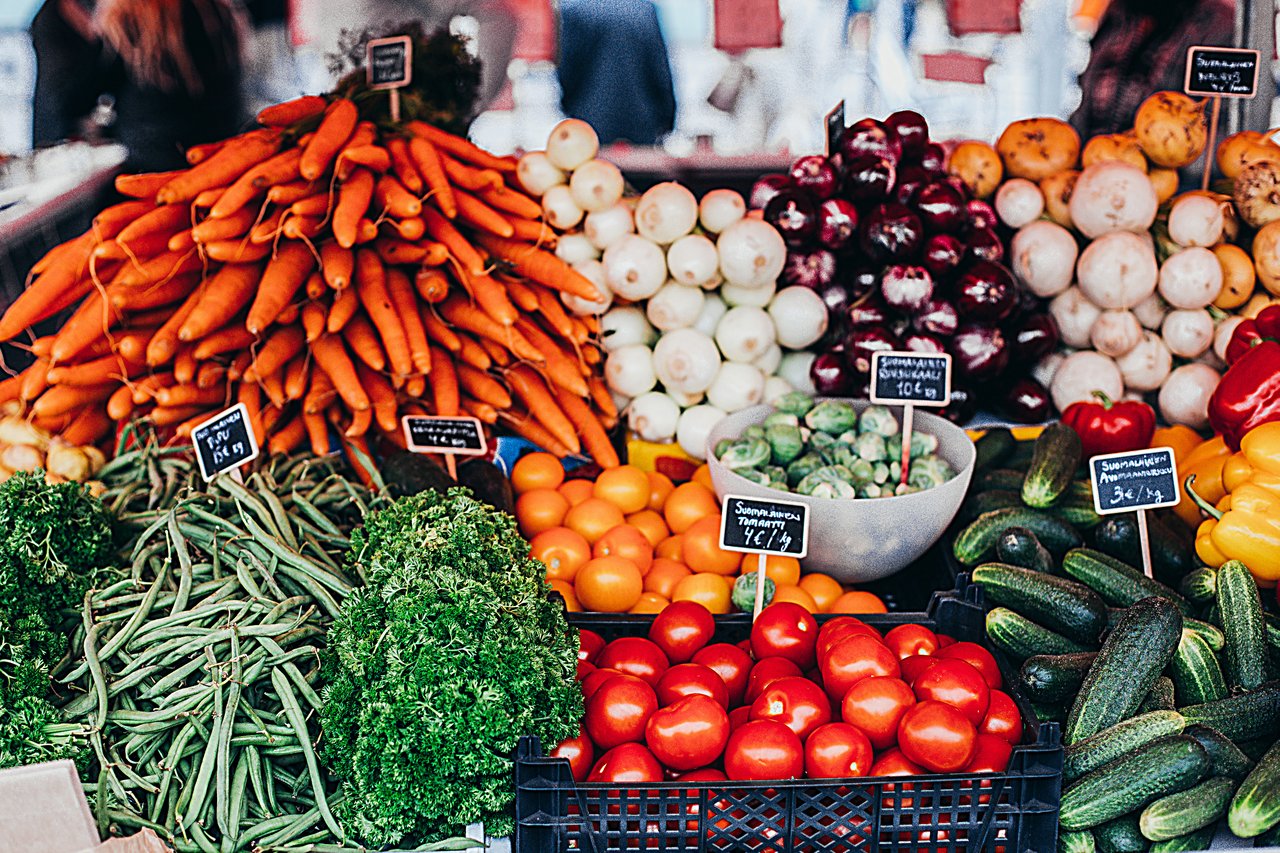


For centuries, humans relied on the changing seasons to harvest many different kinds of fruits and vegetables.

With each changing season, our ancestors (as recently as a century ago) let these shifting harvests frame and regulate their eating habits. Lighter foods were plentiful in pleasant springs and warm summers, and hearty foods provided comfort during cool falls and frigid winters.
Nowadays, things could not be more different. Modern consumers expect to always see their favorite fruits and veggies in grocery stores, regardless of the season. While profitable for many major corporations, this ceaseless demand comes at a cost to our health, planet and taste buds.
In fact, many popular fruits such as blackberries and tomatoes are rarely eaten in season, minimizing their positive effects on our wellbeing. Making things worse, the more we eat outside of peak harvest, the more we miss out on the wonderful flavors and incredible nutritional value some of our favorite foods provide.
So, why should you let seasons shape the way you shop and eat? And can it be as helpful for your wallet as it is for your body and environment?
Let’s explore the fantastic benefits of seasonal eating:
When we eat fruits and vegetables in their peak harvest, it means supporting local businesses and hard-working neighborhood farms in our community. This support is essential for economic development, as it creates jobs and funds local agriculture industries responsible for food processing and distribution.
Eating local also means eating in season, which helps us dramatically cut down on the environmental cost of transporting fresh fruits and veggies over great distances. This decrease in transportation requirements lowers greenhouse gas emissions, the need for refrigeration and irradiation of produce. Plus, eating seasonally also aids the fight against genetically engineering crops, a practice that depletes healthy soil of its nutrients.
One of our favorite parts of seasonal eating is that it provides you fresher and more delicious fruits and vegetables.
When crops are harvested based on their environment’s natural conditions, they are allowed to develop and ripen into the best version of themselves. This leads to a noticeable difference in taste, texture and sustainability that chemically or genetically altered crops simply cannot match.
If you’ve ever had a freshly picked apple on a crisp Autumn afternoon or a juicy blackberry on a warm summer evening, you know that the taste of ripe, in-season fruit can’t be matched. The same goes for vegetables -- do you think pumpkin and squash would taste as good at Thanksgiving if they weren’t in season?
When it comes to produce, Mother Nature knows best. Trust her, and you’ll discover a world full of delicious, fresh and seasonal flavor.
For most things in life, higher quality equals higher cost -- but not with produce! That might sound confusing, but the explanation is simpler than you’d think:
While most produce can be purchased year-round, its highest yield comes in peak season -- when fruit and veggies are their freshest and most delicious.
This increase in supply leads to an immediate decrease in cost, making produce from your local farmers easier to find and purchase. Plus, cuts in cultivation and transportation expenses reduce costs even more, which translates into additional savings for you!
Whether you love sweet pineapple in Summer or tart grapefruit in Winter, we guarantee that seasonal purchasing will bring you your favorite flavors at a reliably lower cost.

When you purchase produce closer to its harvest, it retains a much higher nutritional value than out-of-season varieties.
With a brighter, more appetizing appearance, in-season fruit and veggies look better because they actually are -- fresh produce is scientifically proven to better retain antioxidants like vitamin C and beta-carotene as well as B9 (folic acid) and minerals like potassium.
Originating from healthy, properly-utilized soil, seasonal produce also has a far longer shelf life than its competitors. Fruit and vegetables grown out of season often have to be shipped a great distance and stored for longer periods, leading to a substantial decrease in phytonutrient content.
To make matters worse, out-of-season produce is also more likely to be contaminated by irradiation and preserved in wax, further reducing nutritional value and taste.
One of the unique things about a seasonal diet is that it can make preparing, cooking and eating food far more exciting!
By eating seasonal, you give yourself more opportunities to be creative and adaptable. Each season, you’ll pick out your favorite produce and learn to make delicious meals that make the most of what the harvest has to offer.
If you're not sure which types of produce are in season in your area, check out this helpful Seasonal Food Guide by GRACE Communications Foundation
Whether you enjoy spinach in the Spring to alkalize and purify your body or carrots in the Winter to promote heart, liver, eye and skin health, there are infinite ways to find delicious in-season combinations that satisfy your body and taste buds.
Your exploration of local farmers’ markets will introduce you to fruits and vegetables you may have never thought of trying, and you’ll be surprised to find just how versatile in-season produce can be.